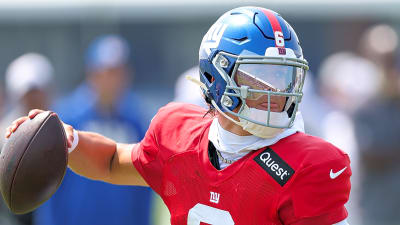
José Mourinho’s last season ended in disappointment, sparking heated debate over whether he should be sacked or given another year.
Fenerbahce, determined not to repeat the same managerial instability of the past, ultimately decided to keep him on.
The summer brought significant changes to the squad. Džeko, Tadić, and Saint-Maximin all departed, leaving gaps in leadership and attacking quality.
In their place, Archie Brown, Jhon Durán, and Nélson Semedo have arrived.
The new signings have shown flashes of promise, suggesting they can become key contributors over the course of the season. However, doubts remain, not just about the incomplete transfer business, but also about Mourinho’s tactical approach.
The challenges ahead will be tougher than last year, and if results don’t come quickly, this could be Mourinho’s final campaign in charge.
Problems With the Game Plan
Mourinho is eager to restore his trademark transitional football, a system built on compact defending, quick turnovers, and rapid counterattacks. He believes a three-at-the-back formation is the most effective structure for this.
Many Fenerbahce fans, however, dislike the system, associating it with overly defensive football that doesn’t suit the club’s attacking traditions.
The summer signings of a left wing-back and a right wing-back make his tactical direction clear, but deeper problems remain.
Passing accuracy is poor, players often seem unsure of their roles, and positional discipline breaks down under pressure.
These were glaring issues last season, and frustratingly, there’s been no visible improvement.
Fred, now 32, has declined physically compared to his impressive 2023/24 campaign. His dual role, helping both in defence and attack, leaves him drained by halftime.
Amrabat, brought in to partner him as a defensive midfielder, simply isn’t quick enough to close down space or track the runs of modern, dynamic midfielders.
Against elite European sides such as Benfica, Feyenoord, and Rangers, this lack of mobility is brutally exposed.
Then there’s Sebastian Szymański. As the team’s playmaker, he should be dictating attacks, but instead, he too often loses possession and offers little improvement in his passing range or vision.
Not Just José Mourinho’s Fault
The blame cannot rest entirely on Mourinho.
The club’s transfer business was slow and weakly timed. All key signings should have been in place before pre-season, yet Mourinho’s specific request for a quick, counter-attacking left winger remains unfulfilled.
The recent Champions League match against Feyenoord made this absence glaringly obvious. Without pace out wide, counterattacks broke down as players waited for support instead of bursting forward.
Irfan Can Kahveci wasted two promising situations, underlining the lack of a true speed threat.
There’s also the issue of in-game management. Club president Ali Koç promotes a “fair play” philosophy, admirable in theory but mismatched to the realities of Turkish football.
In high-stakes matches, tactical fouls, slowing the game down, and managing the clock are part of the craft. Sometimes, winning requires a touch of cynicism, something closer to Machiavelli than Superman.
External Challenges
Beyond internal flaws, Mourinho faces the unpredictable nature of the Turkish league.
Rules can be changed mid-season, having an impact on squad composition and transfer plans. The competition is also uneven: of the 18 teams, only four are genuine title contenders.
Meanwhile, Galatasaray have strengthened significantly.
They addressed all squad gaps and signed Victor Osimhen, last season’s standout. With financial stability and squad depth, they may remain unbeaten until key derbies or unexpected setbacks.
The contrast with Fenerbahce‘s uncertainty could not be starker.
With fans demanding a title and a board election on the horizon, Mourinho’s margin for error is slim.
Fenerbahce supporters dream of lifting the trophy under Mourinho, but with the current squad limitations and structural issues, the reality looks different.
At present, Fenerbahce is a burning tree, and Mourinho is a firefighter without a firetruck. Until the board takes a more professional approach to management and solves the club’s internal problems, it’s unfair to pin all the blame on him.
In my next entry, I’ll dive into the diets of professional footballers and explore what everyday people can learn from them, especially for maximising results in the gym.
More must-reads:
- Unheralded depth players push MLS' wildest team into playoff contention
- Browns QB Shedeur Sanders' preseason debut proved this to former player
- The 'NFL single-season reception leaders' quiz
Breaking News
Trending News
Customize Your Newsletter
 +
+
Get the latest news and rumors, customized to your favorite sports and teams. Emailed daily. Always free!








